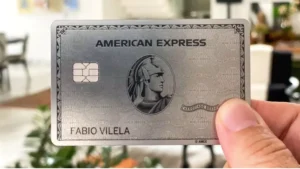Credit cards dedicated to travel propose a variety of reward programs designed to encourage their use with concrete benefits. To make the most of them, it is essential to understand how they work and adapt them to your spending habits.
These loyalty systems allow you to accumulate points or miles, redeemable for plane tickets, hotel nights, or more travel perks. To maximize these advantages, you should choose a card suited to your lifestyle and regular expenses.
Here are some strategies to optimize your use of a travel credit card:
- Focus your purchases on the most rewarding categories, such as dining, transport (train, plane, bus), or lodging. Some cards offer specific bonuses for these types of purchases.
- Use your card daily for regular expenses (groceries, gas, bills) to accumulate points faster. Make sure to always pay off your balance each month.
- Watch for promotions that loyalty programs regularly offer, as well as welcome bonuses, often very advantageous. Subscribe to newsletters and check the card issuer’s websites regularly.
- Take advantage of signup bonuses that many travel credit cards offer, such as a significant number of points or miles after reaching a certain spending threshold in the first months.
- Pay your balance in full each time to avoid interest and make the most of the rewards without additional costs. Interest can quickly cancel out the benefits of rewards.
How do points, miles, and cashback work?
Cashback works differently: it allows you to recover a fraction of your expenses, directly deducted from your bill. This is a practical and transparent option since the refund amount directly depends on your spending and not on currency fluctuations or complex conversion systems.
Certain cards offer attractive signup bonuses, such as a significant number of points upon card activation, or discounts on your first purchases. These immediate benefits can be a decisive factor in your choice.
In general, points are awarded based on money spent, usually one point per dollar. Some cards offer bonuses for specific categories, such as travel or restaurants, accelerating point accumulation. In some cases, it is also possible to transfer points to partner loyalty programs (airlines, hotels), offering more flexibility in their use.
Before making your choice, pay attention to the rate of point accumulation, the spending categories eligible for bonuses, and the different redemption options.
Also consider the annual card fees and compare the advantages offered. This will help you select the card best suited to your spending habits and travel goals.
What travel guarantees and assistance are included and how do they protect you?
Credit cards dedicated to frequent travelers include guarantees and assistance services that can be very useful during trips. They cover various unforeseen events, such as baggage loss, trip cancellation, or medical expenses abroad.
These protections provide peace of mind, especially when far from home. They allow you to face travel uncertainties with more confidence. For example, some cards offer trip cancellation insurance that reimburses costs if a trip is canceled due to illness or accident. Others provide baggage insurance covering the loss or theft of personal belongings.
The assistance included in these cards goes beyond simple help: it offers quick, adapted support for medical, legal, or logistical needs, regardless of destination. Imagine needing a doctor speaking your language in a foreign country; your card assistance may help you.
For professionals traveling frequently, these guarantees are indispensable. They provide extended coverage, simplifying the management of unforeseen events that may arise during business trips abroad. They allow you to focus on your professional goals without worrying about logistical or financial setbacks.
What assistance is available in case of emergency abroad?
Travel assistance includes coverage in case of medical emergency, trip cancellation, or protection of your belongings. This service also offers personalized support through a concierge accessible anytime, every day. Whether organizing reservations, adjusting an itinerary, or facing unforeseen events, you can count on it. This assistance may include covering medical care, organizing medical repatriation, or helping recover lost documents.
High-end cards, such as Platinum, Black, or Infinite, generally offer extended travel insurance. It is essential to consult the specific conditions of your contract to know the exact coverage. Reimbursements are common but vary depending on the guarantees. Check reimbursement plans, exclusions (risky sports, specific destinations), and the procedures to follow to file a claim.
How does a travel credit card facilitate foreign purchases and help avoid exchange costs?
A credit card dedicated to travel greatly simplifies payments abroad, allowing purchases directly in the local currency, avoiding the need for currency exchange in advance. To minimize costs, it is crucial to choose a card with no commission on international transactions.
It is preferable to always pay in the local currency of the country visited to avoid dynamic currency conversion (DCC), which is disadvantageous. Some cards offer competitive exchange rates or reimburse fees linked to foreign payments, thus reducing expenses.
The IOF (Tax on Financial Operations) of 6.38% is applied to all credit card payments abroad and must be included in your budget.
Multi-currency cards allow loading multiple currencies simultaneously, facilitating payments in the local currency without conversion fees for each transaction. They offer better financial management while traveling and protect against exchange rate fluctuations.
To optimize the use of a credit card abroad and avoid unnecessary expenses, consider the following points:
- Choose a card with no international transaction fees.
- Prefer payment in the local currency to avoid DCC.
- Account for the IOF (6.38%).
- Explore multi-currency cards for simplified management and protection against exchange variations.
What are the advantages of a multi-currency card?
A multi-currency card offers a practical solution to manage different currencies without juggling between accounts or extra cards. It centralizes all your funds, simplifying payments abroad.
Besides facilitating international transactions, it helps avoid high conversion costs associated with traditional bank cards. The exchange rates applied are generally more competitive, resulting in substantial savings. For example, some multi-currency cards offer interbank rates, which are more advantageous than those proposed by traditional banks.
Another advantage is the possibility of preloading the card with desired currencies. This not only allows better control of your budget but also anticipates unfavorable exchange rate fluctuations. It is a smart way to plan expenses and avoid unpleasant surprises.
Functioning like a prepaid debit card, it is accepted worldwide. Its flexibility makes it an excellent choice for frequent travelers or those making online purchases in other currencies. Additionally, most multi-currency cards provide a mobile app to monitor expenses and reload easily, offering an extra layer of control.
What are the eligibility criteria and how does your credit score affect your application?
The conditions to obtain a card vary depending on the financial institution. However, a good credit score is always a decisive advantage. It influences not only the approval of your application but also the credit limit granted and the interest rate applied. A solid credit history demonstrates financial reliability, reassuring financial institutions.
Banks use this score to evaluate risk. A high score increases your chances of obtaining cards with better advantages, such as travel bonuses, cashback, or lower interest rates. Conversely, a weaker score may limit your options to less advantageous offers until your financial situation improves. It is crucial to know your credit score and understand how it is calculated.
To maintain or improve your credit score, here are some practical tips:
- Pay your bills on time: late payments have a major negative impact on your score.
- Maintain a low credit utilization ratio: avoid using more than 30% of your available credit.
- Diversify your credit types: having different accounts (credit cards, loans) can be beneficial.
- Regularly check your credit report: ensure there are no errors or fraudulent activities.
By adopting these habits, you will strengthen your credit profile and improve your access to better credit options, especially for travel.
What credit limit should applicants request?
The credit limit you choose should match your personal situation and what you can repay. A very high limit may encourage overspending and create financial difficulties, while too low a limit may restrict flexibility and prevent you from covering unexpected expenses or travel opportunities.
Before choosing, take time to carefully examine your monthly spending habits, including fixed expenses (rent, bills) and variable ones (food, leisure), without forgetting occasional costs like vacations or emergencies (repairs, medical). This reflection helps determine an adapted amount.
As a general rule, it is recommended to opt for a limit equivalent to one or two months of usual expenses, provided your credit history justifies it. Remember that responsible card use, paying on time and keeping balances low, helps improve your credit score and opens doors to better financial offers in the future.
How to find the best travel credit card offers and enjoy airport benefits?
To find the best travel credit cards, start by exploring online comparison tools. They provide a quick overview of available offers, showing side by side the annual fees, interest rates, and reward programs. Don’t hesitate to consult personal finance websites, which offer detailed reviews and comparisons based on specific criteria, such as included travel insurance or foreign transaction costs. Finally, watch for promotions directly from banks, as they may offer attractive welcome bonuses or reduced first-year fees.
For frequent travelers, some cards include valuable airport privileges. These advantages may include:
- Free or discounted VIP lounge access, offering a relaxation space away from terminal crowds.
- Extra baggage allowance, allowing you to bring more without additional fees.
- Priority boarding, saving time and avoiding long waits.
These benefits are not always automatic. They may depend on a certain number of visits per year or a minimum spend with the card. Carefully check the card’s terms to understand and maximize these advantages.
Prestigious cards also offer concierge services dedicated to travelers. This type of assistance can greatly simplify trips, making airport experiences more comfortable, helping with flight or hotel bookings, or even getting tickets to events.
Which banks offer advantageous cards?
Certain banks offer premium cards such as Visa Infinite, Mastercard Black, or American Express Platinum. These prestigious cards come with a wide range of privileges designed to enhance travel experiences and offer peace of mind.
Among the most sought-after advantages are VIP lounge access in numerous airports, allowing relaxation before a flight in a comfortable setting often with free snacks and drinks. The accumulation of miles for your air travel is another major benefit, turning everyday spending into travel opportunities. Additionally, these cards offer particularly comprehensive travel insurance coverage, including trip cancellation, baggage loss, and medical assistance abroad, protecting you from unforeseen events.
The choice of the best card depends on your lifestyle and travel frequency. For an occasional traveler, a card offering hotel or travel discounts may be ideal. For a frequent traveler, a card with VIP lounge access and strong travel insurance will be more appropriate. It is essential to carefully compare the different options available before making your choice, considering your travel habits and specific needs.








